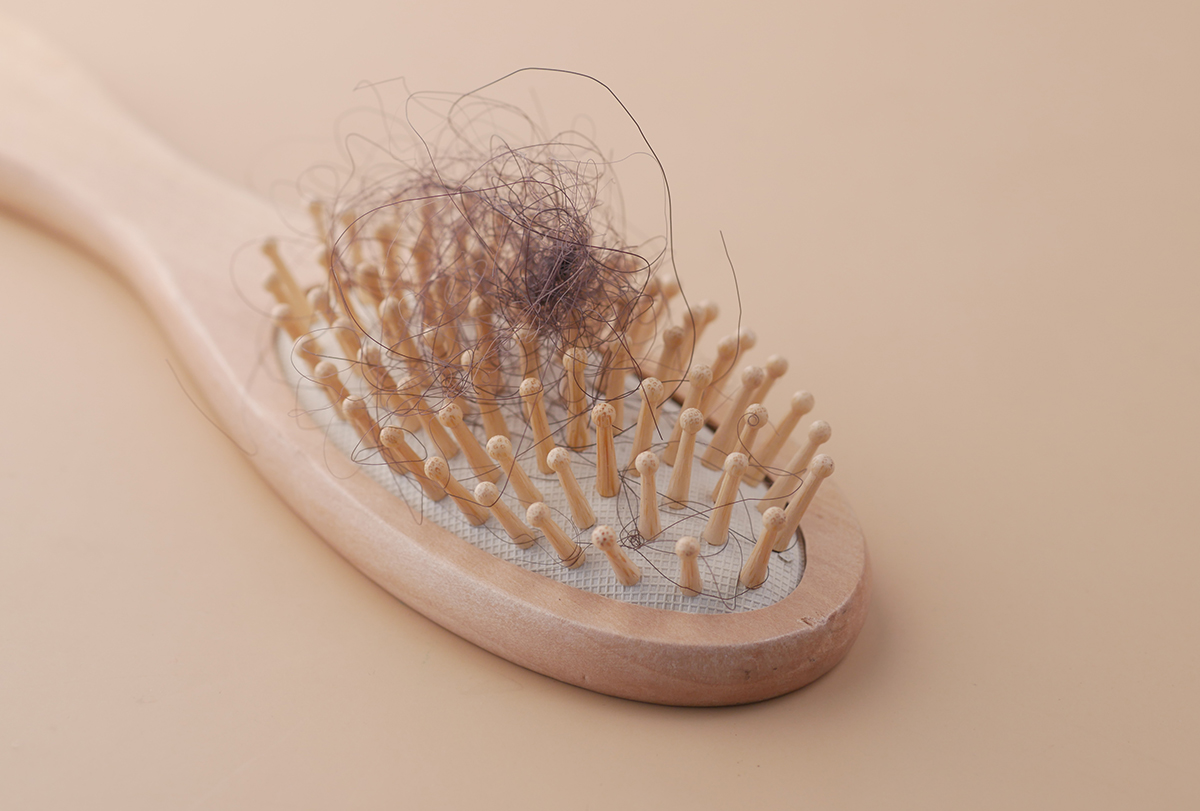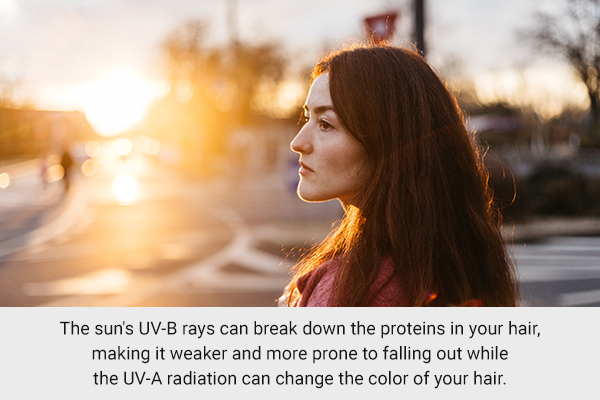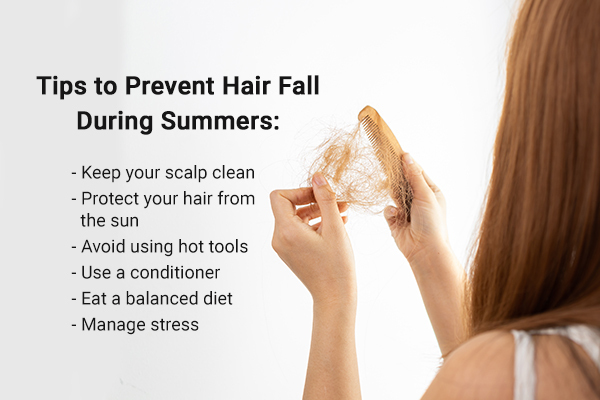In this article:
Summers bring a lot of changes in people’s lives, from diet to outfits to skin care. However, one of the most common yet dreadful changes one may experience during summer is hair fall.

Although hair fall is a common issue that affects both men and women, an excess of it can be a source of worry and stress.
But how much hair fall is normal and how much is worrisome during summer?
According to the American Academy of Dermatology, it is expected that up to 100 hairs fall per day. (1)(2) However, during summer, you may experience a slightly higher rate of hair fall due to several reasons such as heat and sun exposure and excessive sweating.
For such reasons, experts claim that it is normal to lose a little more, such as up to 150 hairs per day, during summer. However, if you are encountering hair fall beyond this number, it is better to talk with a professional. (1)(3)
This article will explore the topic more and share useful tips to prevent hair fall during summer.
Why Does Hair Fall Increase in Summer?
Hair fall is a problem that many people encounter, especially during summer. Even those who don’t have any medical condition related to hair loss may experience it.
Here are a few most probable reasons for this problem.
1. Hair fall may happen due to seasonal hair loss
The growth and shedding of hair follow a seasonal pattern, which means that the amount of hair loss you experience can vary throughout the year.
Scientists have conducted studies using a technique called a trichogram to better understand this pattern. They found out that during the summer months, there is a higher number of hairs in the resting phase, which are more likely to fall out. (4)
This means that you may experience more hair loss during the summer because more hairs are in the stage where they naturally shed.
There is also a smaller increase in hair shedding during the spring, and the lowest rates of shedding occur in late winter. (4)(5)
2. The sun’s UV rays can break down hair proteins

During the summer, staying out in the sun for long durations can harm your hair.
This is because the sun’s UVB rays can cause breakage of the proteins in your hair, rendering it vulnerable and more susceptible to falling out, while the UVA radiation can change the color of your hair. (6)
When sunlight hits your hair, the amino acids in your hair break down and create harmful substances called free radicals. These free radicals can damage the proteins in your hair, especially keratin, which is important for hair strength.
To protect your hair, it’s highly advised to avoid excessive sun exposure. You can also use hair care products that have UV filters to protect your hair from the UV rays. (6)
3. Excessive sweating can compromise scalp health
Sweating during summer can sometimes contribute to hair loss, as suggested by experts.
A study reveals that sweating can cause inflammation in the scalp, which may damage the hair follicles and lead to hair fall.
The study explains that sweating triggers an inflammatory response in the scalp, which can harm the hair follicles. This inflammation disrupts the normal growth cycle of the hair, leading to weaker hair strands that are more prone to falling out. (7)
How to Prevent Hair Fall During Summer?
Here are some suggestions to avoid hair fall during summer.

1. Keep your scalp clean
Washing your hair regularly can help keep your scalp clean and prevent the accumulation of sweat and sebum. Use a mild shampoo and avoid intense chemical-containing products that can damage your hair. (8)
2. Safeguard your hair from the sun
The UV rays can harm your hair. Put on a hat or a scarf to safeguard your hair from the sun. You can also apply a hair sunblock to protect your hair from sun rays. (6)
3. Avoid using hot tools
Using heat-styling tools such as dryers, straightening rods, and curling rods can damage your hair. (9)
4. Use a conditioner
Condition your hair after every wash to moisturize it and prevent breakage. (9)
5. Eat a well-balanced meal
A balanced meal rich in protein, vitamins, and minerals can support hair health. Include foods such as eggs, nuts, leafy greens, and fish in your diet. (10)(11)
6. Manage stress
Stress can contribute to hair fall. Incorporate relaxation techniques such as yoga, meditation, or deep breathing to manage stress. (12)
7. Consult a dermatologist
Excessive hair fall during summer can be a sign of an underlying medical condition.
If you are experiencing excessive hair fall, consult a dermatologist or a hair specialist. They can diagnose the underlying cause of your hair fall and recommend appropriate treatment.
Most-Asked Questions About Hair Fall During Summer
Can hair fall be caused by swimming during summer?
Yes, exposure to chlorinated water in swimming pools can cause hair fall. Chlorine can strip the natural oils from your hair, making it dry and brittle. (13)
Can hair fall be caused by a poor diet?
Yes, a poor diet lacking essential nutrients such as protein, vitamins, and minerals can lead to hair fall. (10)(11)
Can stress cause hair fall?
Yes, stress can contribute to hair fall. Stress can disrupt the normal hair growth cycle, leading to hair fall. (12)
Final Word
It is normal to experience some amount of hair fall during summer. However, excessive hair fall can be a cause for concern and should be addressed by a dermatologist or hair specialist.
By following the tips mentioned in this article, you can prevent hair fall during summer and promote healthy hair growth.
- Was this article helpful?
- YES, THANKS!NOT REALLY


